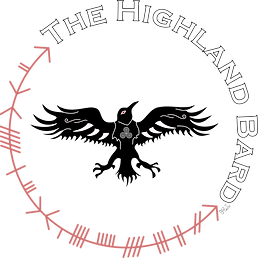Welsh and Irishmen are genetic blood-brothers of the Basque people. The Basques are thought to be the closest descendants of the Paleolithic people who established the first settlements in Britain more than 10,000 years ago.
A DNA study now shows that Celts carry a Y chromosome, which provides the first clear evidence of a close relationship in the paternal heritage of Basque and Celtic speaking populations. ¹
The Basque ethnic group comes from a region of southwest France and northwest Spain known to outsiders as Basque and to Basque people as Euskal Herria. “Euskal” refers to Euskara, the Basque language, which is linguistically distinct from French, Spanish and indeed any other language. Spoken by approximately 28 percent of modern Basques, it’s unclear exactly where it came from, how it developed, or why it is so distinctive. There are at least six Basque dialects, but the majority of Basques speak a standardized version developed in the 1960s.
Recent research indicates Basques descended from Neolithic farmers who became genetically isolated from other European populations due to their geographic location, which has landscapes that range from coastline to the rocky hills of the Western Pyrenees. That largely inhospitable terrain led to past isolation, which helped determine the course of Basque history.
Basques lived in northern Spain when the Romans invaded the area in 196 B.C., for instance, but managed to retain most of their traditions and laws throughout Roman rule and their time under the various invaders that followed.
From around A.D. 824, Basque was part of the Kingdom of Navarre, a medieval state ruled over by a series of monarchs. In 1515, much of Navarre was annexed to the Crown of Castile and became part of what would become modern Spain. After a period of relative independence, Basque self-government was abolished by the Spanish government in Madrid beginning in 1839. Over time, a growing Basque nationalist movement began to insist on political unity and agitate for a separate Basque nation.
During the Spanish Civil War, Francisco Franco forbade the Basque language, stripped rights from the Basques, and ordered the destruction of the Basque city of Guernica. Basques suffered under the Francoist regime. In response, a group of Basque separatists formed Euskadi Ta Askatasuna (ETA) in 1959. The separatist group conducted a decades-long terrorist campaign that ultimately killed over 800 people. The ETA disbanded in May 2018.
By then, Spain had granted relative economic and political autonomy to Basque Country and acknowledged a separate Basque identity. (Though the Basque Autonomous Community, which includes three Basque provinces, has its own identity, it lacks an actual capital: Vitoria-Gasteiz is its de facto capital, but the largest city within Basque Country is Bilbao.) In the years since Franco’s death in 1975, the Euskera language has been largely revived, and most Basques have stopped the call for a fully autonomous nation.
Another ethnic group within Spain, the Catalans, has not, however, and when Catalonia held an independence referendum in 2017, Spain declared it illegal, suspended the region’s autonomy, and jailed the movement’s leaders. The crisis recently came to a head when nine of the leaders were given lengthy prison terms, prompting huge protests, and raising new questions about Spain’s political future. ²
Sources: ¹ The Golden Age Project by Roger Highfield – Science Editor; ² National Geographic
Image: Basques’ Folk Dancers

